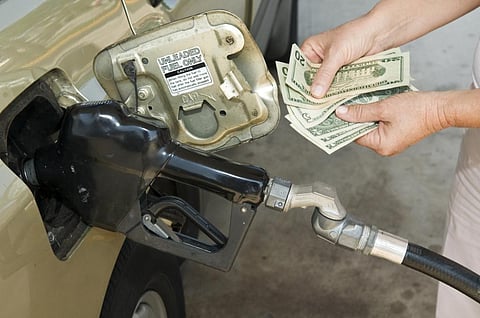

India’s fuel and power prices have risen by 57 per cent between January 2021 and August 2022, according to the ‘Fuel and Power’ price index published by the Reserve Bank of India (RBI), the Indian central banking regulator.
The hike is nearly five times more than overall consumer prices in the country, which increased by 12 per cent over the same time period, the Consumer Price Index (CPI) published by the RBI showed.
This recent analysis by Cambridge Econometrics, a global economics consultancy firm, said fossil fuels, in particular, are likely to be a key driver of consumer price inflation in India.
The ‘Fuel and Power’ price index provides a good indication of energy costs, although the proportion of electricity, fossil fuels and other energy sources is unclear, the analysis said.
In terms of how much fossil fuel-related items have contributed to India’s annual inflation rate, the contribution between April and May 2022 was 21 per cent. This contributed just over a fifth to India’s annual rate of inflation in the spring of 2022, the analysis said.
At that time, India’s annual inflation rate was between 7 to 8 per cent, the research pointed out.
RBI publishes two categories related to fossil fuels — ‘Fuel and Light’ and ‘Transport and Communication’.
“It is not possible to disentangle the impacts of fossil fuel prices from other prices included, but the figures for ‘Transport and Communication’ and ‘Fuel and Light’ suggest that fossil fuels currently make a disproportionate contribution to consumer price inflation in India,” the research added.
While the Indian government handed out fossil fuel subsidies and price control measures amounting to nearly 0.5 per cent of the country’s Gross Domestic Product, urban households in the Delhi area still spent at least Rs 4,100 more in 2022 compared to 2021.
Households in the Delhi region are estimated to spend 25 per cent more on fuels and electricity in 2023 than in 2021 and nearly 50 per cent more than in 2020, the researchers said.
These figures were calculated after comparing CPI to the household expenditure data from the latest identified India’s Household Consumption Survey (2011-2012).
“Note that these figures only refer to the direct contribution of fossil fuel prices to the consumer price index. Across the economy, producers are also affected by higher fuel prices and this, in turn, leads to rising prices in other goods when producers start passing through higher costs to buyers,” the analysis said.
“The strong correlation between energy and inflation in India makes a strong case for India to decarbonise its economy. There definitely is evidence to support the argument that renewable energy can moderate the impact of energy prices on CPI in the long run,” the report’s lead author, Carl Heinemann, stated in a press release.
“The lifetime cost per megawatts per hour of new solar PV and wind power plants in India is estimated to be far cheaper than that of new coal-fired plants and natural gas-based electricity production. Increasing the share of renewables in electricity production has been found to reduce spot prices in India’s wholesale market,” Heinemann added further.